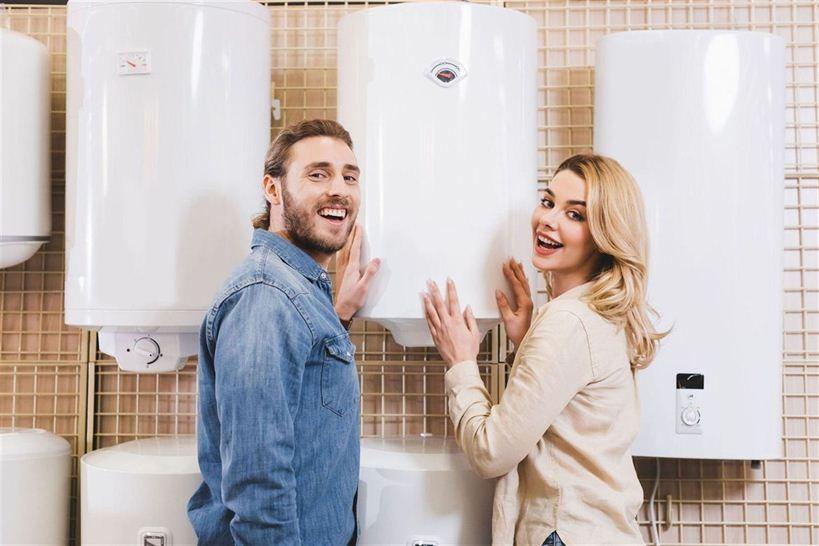
You want a water heater that ensures you have hot water whenever you need it. You want a water heater that keeps your energy bill low. You want a water heater that’s going to last a long time with few security concerns. You want a water heater that gives you good bang for your buck. That’s a lot of goals, and there are a lot of water heaters – let’s break it down:
To Tank or Not to Tank
There’s a new player on the water heater market: tankless water heaters. The principle behind tankless heaters is simple: heat water on demand to avoid the standby heat loss typical of tank-based water heaters. In other words, because no hot water is sitting stagnant, tankless heaters are more efficient.
Tankless heaters are more expensive than traditional tank heaters, but because they heat water more efficiently, you can save money on energy costs. For some homes, the annual energy savings can be well above 25%, so the cost can be recouped rather quickly.
One disadvantage of tankless heaters is that because they heat water on demand, if demand surges, the tankless heater might get overworked. That can mean a very literal splash of cold water to the face when you least expect it. This issue can be resolved by finding tankless heaters with adequate capacity or by installing several tankless heaters for the various fixtures that provide hot water.
At Capacity
The rules for tank heater capacity depend largely on the size of your household. Each bathroom represents an increase in the capacity you need, especially if multiple people want to take showers simultaneously. In the same vein, each bedroom will increase capacity, because bedrooms represent more people in the household. For a one bedroom, one bathroom household, you probably won’t need more than 20 gallons of capacity. Conversely, for a five bedroom household, you’ll want at least 60 gallons. There’s a lot of variance, but most households opt for a 40 or 60 gallon heater.
Gas or Electric?
In Manitoba, you might expect electric water heaters to be less expensive than gas heaters; after all, we have an ample supply of hydroelectricity with some of the least expensive rates in the country. Surprisingly, gas heaters are less expensive to run over time, according to Manitoba Hydro. They do, however, cost more to install upfront. As for the environment, it’s hard to say. On the one hand, natural gas is a bigger pollutant. On the other hand, any unused electricity generated by Hydro can be sold to other utilities who provide power through coal or other fossil fuels.
There are a variety of new ways of providing heating and electricity on the market, from solar powered heaters to heat pump heaters. These technologies are novel and environmentally conscious, but at the time of writing they can be almost prohibitively expensive; it can take decades to recoup their cost.
Looking for the right hot water tank in Winnipeg? Get in touch with us; we’ll help you find the best one for your needs, and we’ll install it for you.
